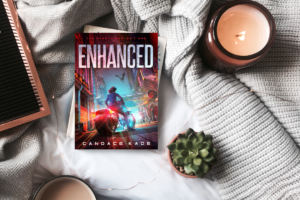You’ve sat down, know your characters, have a plan for writing, the plot is nailed down, and you’re itching to get started.
The first sentence comes out and…. sounds like a preschooler wrote it.
You try again, delete your second attempt, and then switch to paper and pen. That will help! Several crumpled papers later, your waste bin is starting to fill but not the pages. How do you get that perfect intro sentence? How do you set the mood, capture beauty, or develop your style?
Forget the flowery writing. This is your first draft.
First drafts are meant to be crude versions of your final piece. Your goal is to get through as quick as possible. Few writers can get away with perfecting each sentence before continuing. At that rate, most will give up before reaching the end.
There are some essentials you do need in your first draft though. Here’s the short list.
A Good Story
Easier said than done.
Readers want to be entertained—to be sucked into a thrilling story. Who reads a book for aesthetics? Some people but not everyone. I certainly don’t. If I wanted to read something that sounded pretty, I’d be curled up under my comforter sipping tea and reading a Robert Frost poem not a book.
Most people read because they want to be captivated by a story that reflects their own lives, whether real or imagined. So get straight to the point. Don’t spend time diddle dawdling with fancy words that you recently discovered. Utilizing gargantuan confabulations by which to sound impressive, will not only bore the reader, but frequently result in grammatical errors.
In the words of Stephen King, “Your job is to say what you see then get on with your story.” Which brings us to the next point. . .
Tell the truth
Your job as an author is to be a teller of truth. Good stories ring true. They can be set in a far off galaxy, but the emotion and dialog must ring familiar and true to the reader. That’s why a completely fictional fairy tale can bring you to tears. The author has a way of drawing upon things s/he has experience and seen in the real world and captured those perfectly within the realms of a fictional story.

Solid Plot
No one wants to be able to guess the ending to the story. Maybe a piece of it, but the entire thing? That would be boring—closer to real life than fantasy. People read fantasy to escape the mundane and predictable.
Think long and hard about your plot and how to delight your reader with surprises along the way. I know for me, nothing makes me happier than getting to the climax in a book only to be completely surprised by a sudden plot twist that enables the good to defeat evil.
I find myself grinning and wishing I could meet the cheeky author who had me fooled all along. “Brilliant!” I tell myself as I close the book. I’ll definitely be recommending this one to fellow book worms.
This is the thing you have to get right early on before adding all the polish of a later revision.
Passion
If you’re not writing what you love every day you’ll never make it through the first draft. I’ve heard it said most novelist have one person they’re writing for. Who is that person for you? Better yet, why are you writing?
Not only will you be a lot more motivated if you’re writing what you love, but your writing will ring true. Use your passions, your areas of expertise, your hobbies in your writing. Odds are, if you enjoy them, someone else will too. And best of all, you already know all about them and can write with an authority that will shine through in your first draft.




